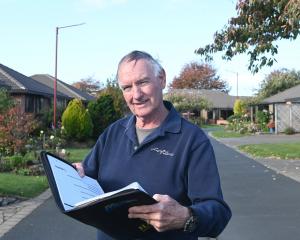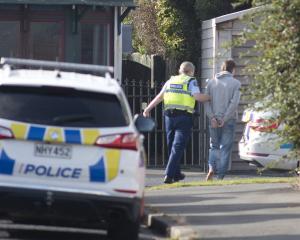A proposal for a cremator in South Dunedin has been declined on grounds it could be detrimental to air quality and breach cultural, spiritual and amenity values.
Hope and Sons wanted resource consent to operate a cremator at its Andersons Bay Rd business.
Last month, a joint Otago Regional Council-Dunedin City Council hearing considered the proposal over two days.
The panel considered 39 submissions, 34 of which were opposed.
The cremator would have been near a food outlet, supermarket and homes.
Hope and Sons applied to the regional council for a discharge to air consent and to the city council to establish and operate the cremator.
The second application was declined on the basis it was unnecessary, as Hope and Sons did not get consent for the discharge to air.
Opponents' concerns centred on the cremator's closeness to homes and business, its effects on the area's air quality, perceived cultural insensitivity and effects on property values.
Panel chairwoman Otago regional councillor Gretchen Robertson, in its decision, said Hope and Sons did not agree to required air discharge standards.
"The applicant does not accept a need for discharge standards or monitoring and state their proposed technology is unable to meet the discharge standards recommended by council."
Cultural issues, raised by local residents and Maori, were "unresolvable".
The cultural views of Maori were reflected by the community at large, the decision said.
"The panel cannot impose standards that are impossible to meet or grant a consent that is culturally unacceptable."
The proposal was likely to have a "profound impact" on residents' ability to enjoy their environment.
Effects on the area's cultural, spiritual and amenity values were significant and could not be mitigated.
The panel had to bear in mind the matter regarded the disposal of human remains.
Hope and Sons' proposed emission of between 25mg and 75mg per cubic metre could contribute to air quality issues in the area.
Discharges over 50mg were not acceptable, the decision said.
The panel did not consider submitters' commercial concerns for the city council's Andersons Bay crematorium as they were not relevant, the decision said.
Grey Power Otago president Jo Millar said the decision was a "huge relief" for people in the area.
Older people tended to be home more, so emissions would affect their health to a greater extent.
Doors and windows might have had to be closed for fear of aggravating existing respiratory problems.
The organisation was concerned the development would have taken business from the city council's crematoriums which could affect ratepayers, Mrs Millar said.
Hope and Sons managing director Michael Hope could not be contacted.












